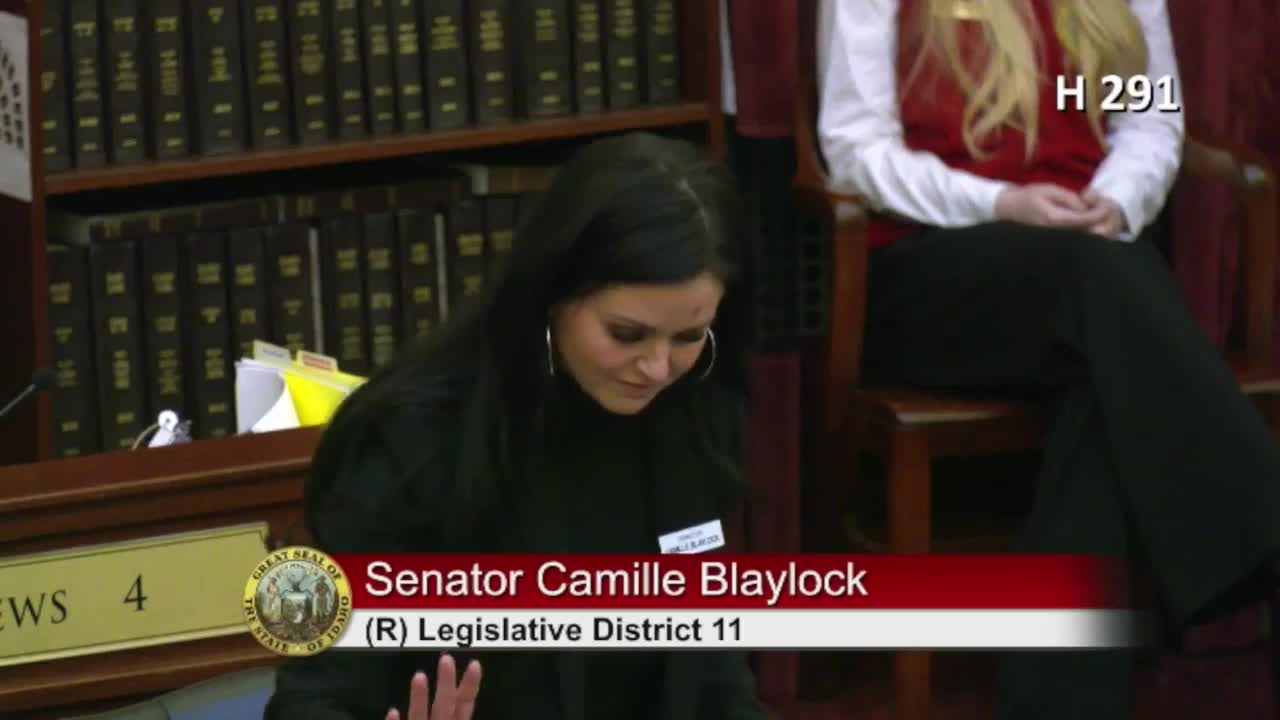Senate rejects bill to create $3 million high-need student fund
Get AI-powered insights, summaries, and transcripts
Subscribe
Summary
The Idaho Senate voted 17-18 to defeat House Bill 2 91, a proposal to create a state reimbursement fund for school districts that face unusually high special-education costs.
The Idaho Senate voted 17 in favor and 18 against on March 25, 2025, defeating House Bill 2 91, which would have created a $3 million “high-need student fund” to reimburse school districts for unusually high special-education costs.
Supporters said the fund would reimburse districts only after they exhausted other funding sources. Senator Tara Blaylock, the bill’s sponsor, told senators the measure targets “students whose special education related costs exceed $15,000” and described real cases in her district in which districts absorbed costs for sign-language interpreters, behavioral interventionists, nursing support and assistive devices.
"This bill helps school districts educate the small number of special needs students who fall under the category of high need," Blaylock said. "It is a last dollar program." She said the fund would reimburse a percentage of costs beyond $15,000, cover 80% of remaining costs up to a statutory cap, and limit any single district to 5% of the fund in a year.
Opponents cautioned that the bill would add another funding stream and could expand over time. Senator Scott Nichols, who pressed the floor, said the state already has multiple special-education funding lines and an Office of Performance Evaluation estimate showed a much larger potential fiscal exposure. "We're already appropriating over $3.3 billion to K‑12 education," Nichols said, arguing the measure risked government growth and duplication.
Other senators who spoke during debate framed the issue around local property taxes, federal funding uncertainty and the practical costs districts face when complying with federal special-education requirements. Senator Lamp warned districts already make up shortfalls from local property taxes, while Senator Van Orden noted federal changes could leave gaps the state must fill.
The roll call that concluded debate included a late change: Senator Adams asked to switch his vote from yes to no before the tally was announced. The secretary then announced the final count and returned the bill to the House.
The bill’s sponsor, Senate supporters and critics agreed on one point in debate: a small subset of students can trigger very large costs for districts. They differed on whether creating a state-level reimbursement program was the correct fiscal and policy response.
Votes at a glance: House Bill 2 91 — Final Senate vote 17 yes, 18 no; result — failed.
House Bill 2 91 will return to the House of Representatives with the Senate’s recorded vote.
